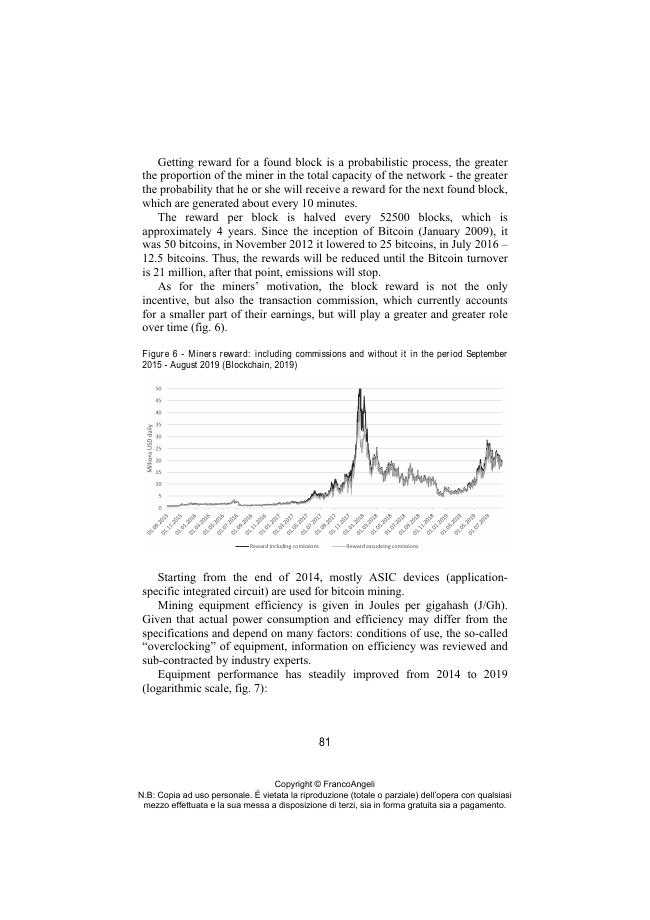Bitcoin mining electricity consumption and carbon footprint
73-88 p.
Crypto economy, first mentioned in 1996, started shaping at the beginning of 2009, after Bitcoin network launch. Being a new phenomenon, Crypto economy causes both great enthusiasm and serious concerns related to its impact on the environment. The amount of electricity consumed by Crypto economy is comparable to the annual consumption by such countries as Chile and Venezuela. The influence of Crypto economy on the planet's ecosystem is growing at a significant pace. Even though there are thousands of cryptocurrencies, bitcoin mining contribution to the overall consumption of electricity by the cryptocurrency industry is crucial.
To understand the alternative cost of maintaining a cryptocurrency industry infrastructure and its impact on the Earth's ecosystem, different electricity consumption models considered and corresponding carbon footprint model introduced. The carbon footprint model based on a third-party estimate of global electricity consumption by the industry and geographical distribution of mining facilities educated guess coming from the internet traffic distribution of mining pools login pages. This approach allowed considering 8 out of top-10 mining pools responsible for the majority of network hashrate. The resulting carbon dioxide emissions taking bitcoin mining yearly electricity consumption equal 73.12 TWh is 40.88 million tons of CO2, which is 0.12% of global carbon dioxide emissions. [Publisher's text].
Forma parte de
Rivista di studi sulla sostenibilità : IX, 2, 2019-
Artículos del mismo número (disponibles individualmente)
-
Información
Código DOI: 10.3280/RISS2019-002007
ISSN: 2239-1959
KEYWORDS
- Crypto economy, bitcoin mining, electricity consumption, carbon footprint



